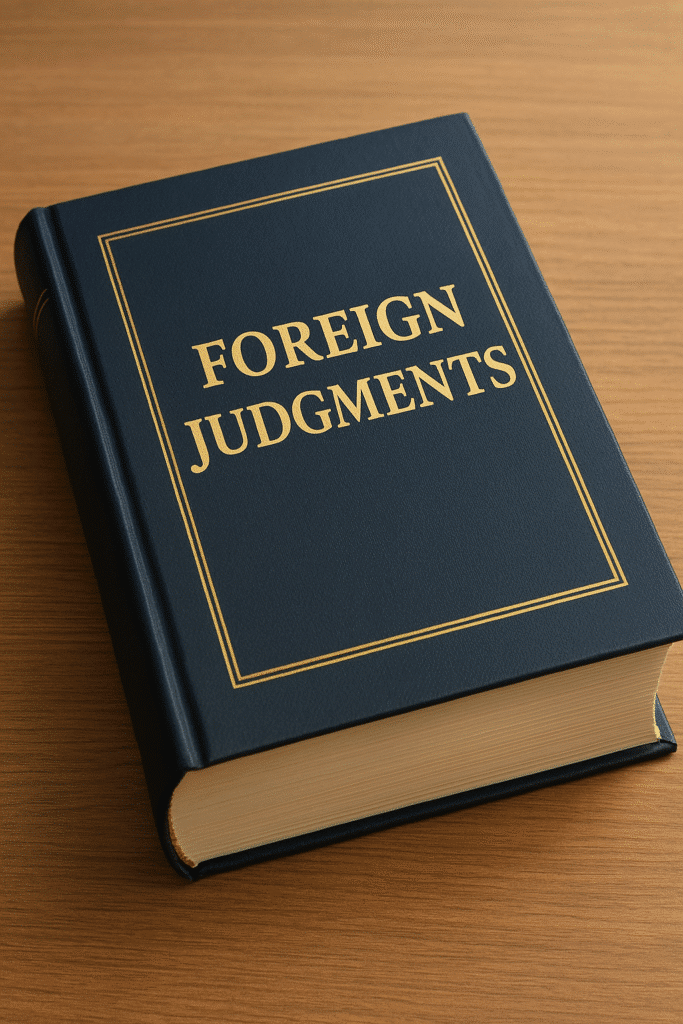Recognizing Foreign Judgments
When cocktail party conversations turn to foreign judgments—as they often do—it is common to hear people speak of “recognizing and enforcing” such judgments. This is unsurprising because the typical case involves both recognition and enforcement of a foreign judgment. In some cases, however, a U.S. court may be called upon to recognize a judgment but…
Continue ReadingTexas Court Gives Foreign Judgment Broad Res Judicata Effect
Gottwald v. Dominguez de Cano is a not a case that most readers would normally hear of. It is a Texas Court of Appeals decision giving res judicata effect to a Mexican judgment to bar a claim in state court to recover money paid in a Mexican land sale more than a decade ago. But…
Continue Reading*Another* Federal Statute Relating to Foreign Judgments
The standard story relating to the enforcement of foreign judgments in the United States goes something like this: There is a special federal statute—the SPEECH Act—that applies to foreign judgments for libel or defamation. The State Department is currently in the process of drafting a federal statute that would implement the Hague Judgments Convention and…
Continue ReadingEnforcement Deadlines for Foreign Arbitral Awards and Judgments
In a recent decision, Amaplat Mauritius Ltd. v. Zimbabwe Mining Development Corp. (2025), the D.C. Circuit held that the Foreign Sovereign Immunities Act’s exceptions for implied waivers and arbitral award enforcement do not apply to proceedings to enforce foreign judgments, even when the judgment is based on an underlying arbitral award. The decision creates a…
Continue ReadingNigerian Judgment Satisfies Arizona’s Reciprocity Requirement
On July 10, 2025, in Ejeh v. Ali, the Arizona Court of Appeals recognized a Nigerian judgment, finding that Nigeria’s foreign judgments law satisfied Arizona’s reciprocity requirement. Reciprocity requirements are rare in state laws governing foreign judgments—Arizona is one of just five states to have such a requirement. The decision thus affords an opportunity to…
Continue ReadingEnforcing Foreign Judgments in Non-Uniform Act States
The recognition and enforcement of foreign judgments in the United States are generally governed by state law. Most states have adopted one of two uniform acts to address this. Twenty-nine states and the District of Columbia have adopted the 2005 Uniform Foreign-Country Money Judgments Recognition Act. Nine additional states still rely on its predecessor, the…
Continue ReadingHow (Not) to Decide Whether a Foreign Judgment Is Preclusive
Foreign judgments are generally entitled to recognition in the United States. Beneath that simple statement, however, lie many complexities. When lawyers and judges do not understand those complexities, they are likely to go astray. That seems to be what happened in Wash v. Finch, a recent federal decision in the District of New Jersey. This…
Continue ReadingForeign-Country Judgments and Full Faith and Credit
Article IV, section 1 of the U.S. Constitution begins by stating: “Full Faith and Credit shall be given in each State to the public Acts, Records, and judicial Proceedings of every other State.” Congress has extended this principle to judgments from U.S. territories and possessions too, providing in the Full Faith and Credit Act that…
Continue ReadingA Primer on Foreign Judgments
[Updated August 22, 2025] In the United States, the recognition and enforcement of foreign-country judgments is generally governed by state law. Nevertheless, the law on foreign judgments is fairly uniform throughout the United States because most states have adopted one of two Uniform Acts. These Acts establish a presumption that final, conclusive, and enforceable foreign…
Continue Reading







